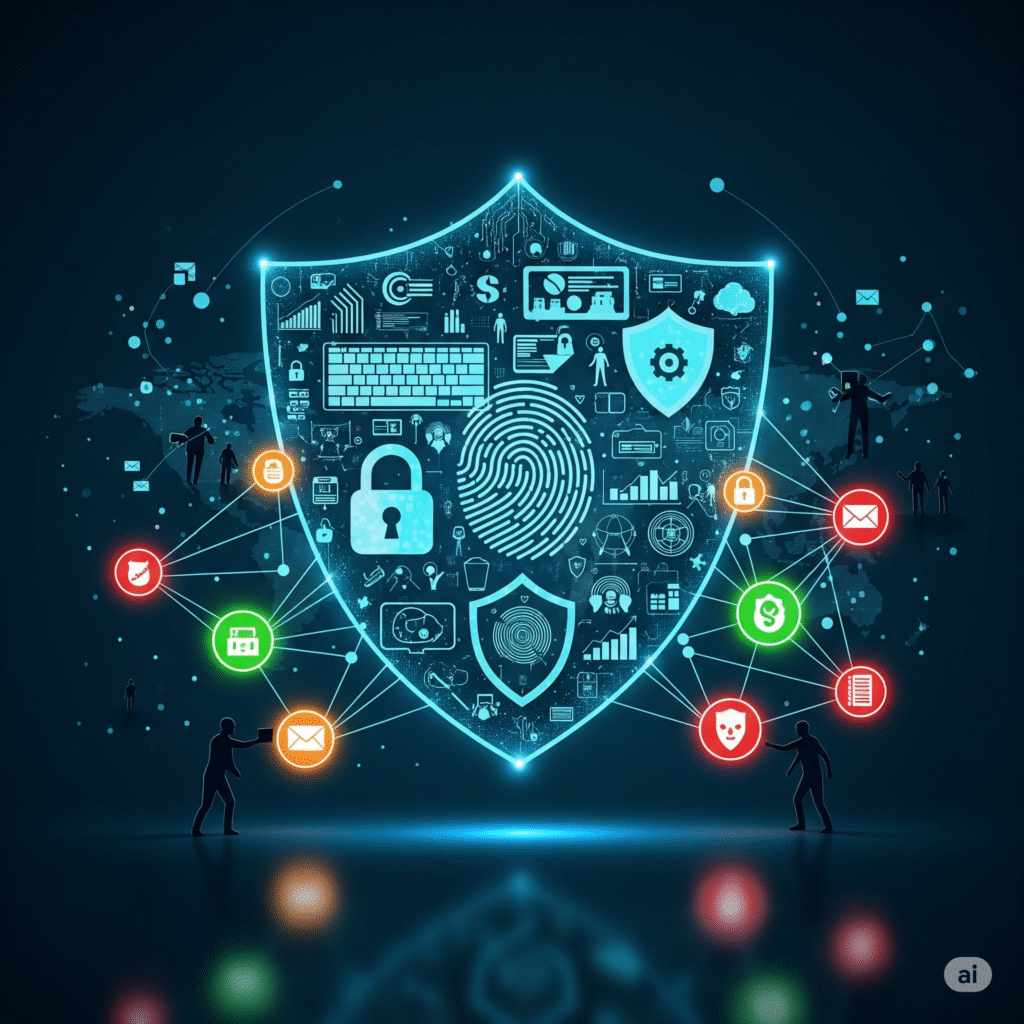In today’s hyperconnected world, cybersecurity isn’t just a tech buzzword—it’s a necessity. Whether you’re an individual browsing the web, a startup launching your first app, or a large enterprise handling sensitive data, cybersecurity plays a crucial role in protecting your digital identity and assets.
💻 What Is Cybersecurity?
Cybersecurity refers to the practice of protecting systems, networks, and data from digital attacks. These attacks are often aimed at accessing, changing, or destroying sensitive information, extorting money from users, or interrupting normal business operations.

⚠️ Why Is It So Important?
With the increasing digitization of our lives—from online banking to smart homes—we’re more exposed than ever to cyber threats. Here’s why cybersecurity matters:
- Data Protection: Prevents theft of personal and financial data.
- Business Continuity: Keeps operations running smoothly despite cyber threats.
- Reputation Management: A single breach can tarnish a company’s image.
- Compliance: Ensures adherence to data privacy laws like GDPR or India’s DPDP Act.
🛡️ Common Cyber Threats
- Phishing – Fraudulent emails or messages tricking users into revealing sensitive info.
- Malware – Malicious software like viruses, ransomware, and spyware.
- DDoS Attacks – Overwhelming a system to shut it down.
- Zero-Day Exploits – Attacks on vulnerabilities before they’re patched.
- Insider Threats – Breaches from within an organization.
🔍 Real-World Examples
- WannaCry Ransomware (2017): Paralyzed healthcare systems worldwide.
- Facebook-Cambridge Analytica Scandal: Misuse of personal data for political purposes.
- Air India Data Breach (2021): Personal details of over 4.5 million passengers leaked.
🧠 How Can You Stay Protected?
For Individuals:
- Use strong, unique passwords and a password manager.
- Enable two-factor authentication (2FA).
- Regularly update software and antivirus tools.
- Avoid clicking suspicious links or downloading unknown files.
- Backup important data in secure cloud or offline storage.
For Businesses:
- Conduct regular security audits and penetration testing.
- Educate employees on cyber hygiene.
- Implement network firewalls, endpoint protection, and encryption.
- Develop an incident response plan for breaches.
🌐 The Future of Cybersecurity
As technology evolves—AI, IoT, quantum computing—so do cyber threats. Future cybersecurity will rely heavily on:
- Artificial Intelligence for detecting threats in real-time.
- Zero Trust Architecture to limit access.
- Blockchain for secure transactions and identities.